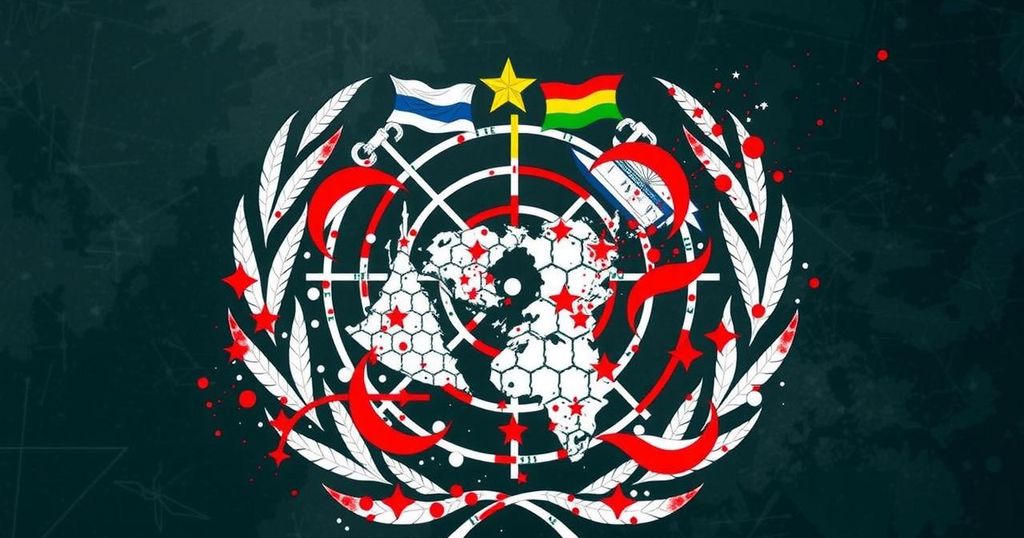Russia’s Veto Blocks UN Resolution for Ceasefire in Sudan

Russia vetoed a UN Security Council resolution on November 18, 2024, which called for an immediate cessation of hostilities in Sudan, where a conflict between rival military factions has been ongoing since April 2023. The resolution aimed to engender negotiations for a national ceasefire amidst a severe humanitarian crisis, but was blocked amid heightened tensions between permanent members of the Security Council.
On November 18, 2024, Russia exercised its veto power at the United Nations Security Council, blocking a resolution aimed at achieving an immediate ceasefire in the ongoing conflict in Sudan. This conflict, which has persisted since April 2023, is primarily between the Sudanese Armed Forces led by General Abdel Fattah Al Burhan and the paramilitary Rapid Support Forces (RSF), headed by General Mohamed Hamdan Daglo. The proposed resolution, drafted by Britain and Sierra Leone, called for both factions to cease hostilities and initiate dialogue towards establishing a national ceasefire. British Foreign Secretary David Lammy condemned Russia’s veto, labeling it a “disgrace” and criticizing the actions of Moscow’s deputy UN ambassador during the proceedings. The international community, including the United States, expressed dismay at Russia’s obstruction, indicating that such actions hinder efforts to alleviate what has been described as one of the world’s most severe humanitarian crises. With tens of thousands of casualties and over 11 million displaced, the situation in Sudan remains dire, underscoring the urgent need for international cooperation and intervention to restore peace and stability.
The Sudan conflict emerged following a military coup in 2021, led by General Abdel Fattah Al Burhan, which disrupted a fragile transition to civilian rule. Following the coup, tensions escalated between Burhan’s forces and the RSF, leading to widespread violence and a humanitarian crisis. As of late 2024, millions of people are facing significant hardships, including food shortages and displacement. The United Nations has sought to facilitate dialogue and peace through various resolutions, but political divisions within the Security Council complicate efforts to achieve consensus, often resulting in vetoes by key members such as Russia and the United States.
The vetoing of the ceasefire resolution by Russia highlights the significant geopolitical tensions that characterize current international relations, particularly within the UN Security Council. With the ongoing conflict in Sudan resulting in a catastrophic humanitarian situation, the lack of a unified global response poses critical challenges to efforts aimed at restoring peace in the region. The situation demands ongoing attention and collaboration among international stakeholders to prioritize humanitarian needs and establish sustainable resolutions.
Original Source: www.jordantimes.com








